What Prominent Latino Elected Officials are Team Kamala?
Ever since President Joe Biden announced on Sunday afternoon that he would not seek a second term and endorsed Vice President Kamala Harris as the 2024 Democratic Party nominee, several Latino Democrats and organizations have been sharing statements of support.

Originally published in The Latino Newsletter–reprinted with permission.
Ever since President Joe Biden announced on Sunday afternoon that he would not seek a second term and endorsed Vice President Kamala Harris as the 2024 Democratic Party nominee, several Latino Democrats and organizations have been sharing statements of support. Here is just a sampling of the Harris endorsements. (FYI, the New York Times has a comprehensive list of all Democratic elected officials who are all in for Harris as of Monday morning. This list is being updated, and other Latino Democrats are on the complete list.)
Rep. Alexandria Ocasio-Cortez (D-NY)

Sen. Alex Padilla (D-CA)
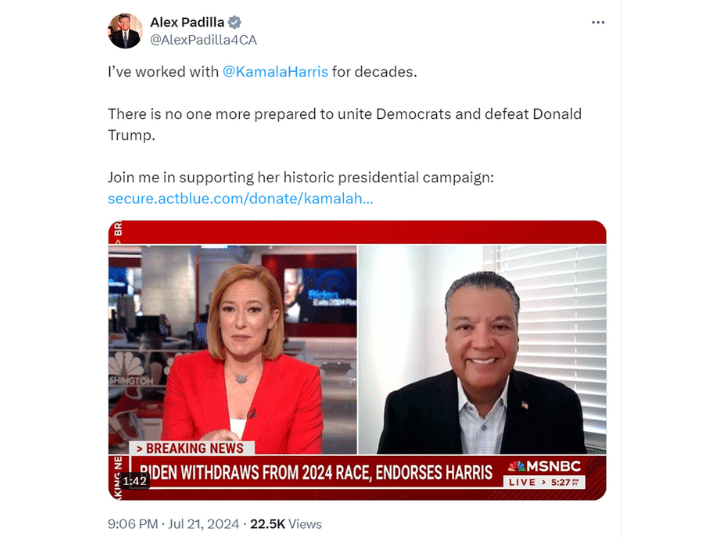
Sen. Catherine Cortez Masto (D-NV)

Rep. Ruben Gallego (D-AZ)

Rep, Nydia M. Velázquez (D-NY)

Rep. Joaquin Castro (D-TX)
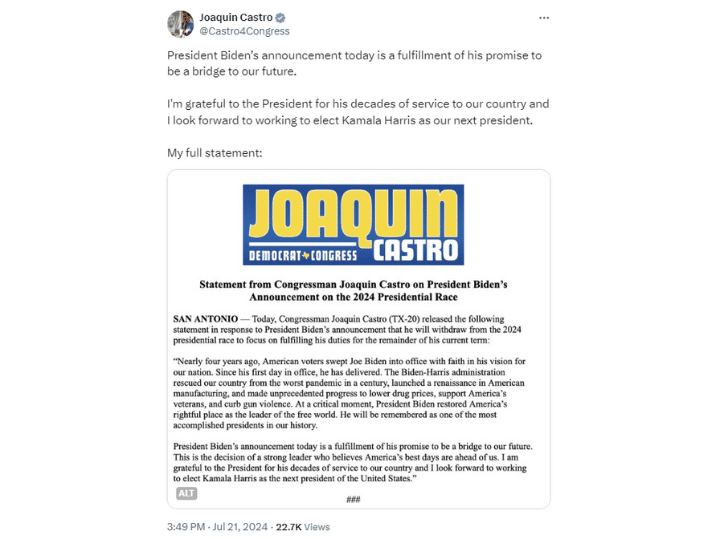
Rep. Veronica Escobar (D-TX)
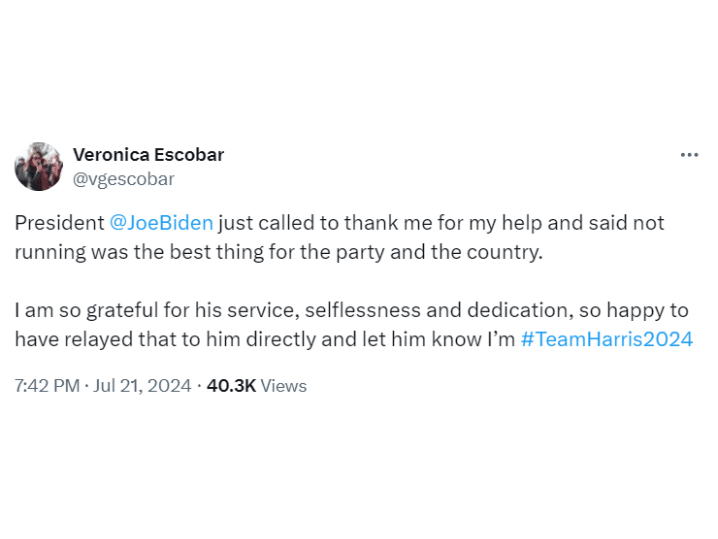
Rep. Greg Casar (D-TX)

Rep. Pete Aguilar (D-CA)
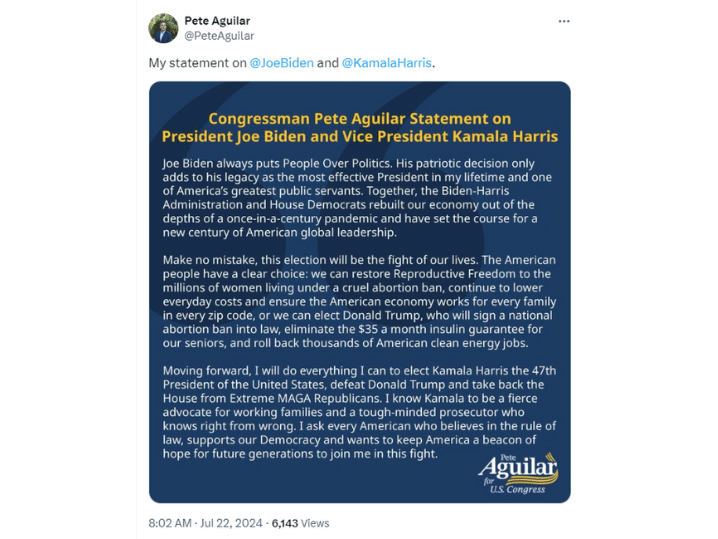
Rep. Yadira Caraveo (D-CO)

Rep. Robert Garcia (D-CA)
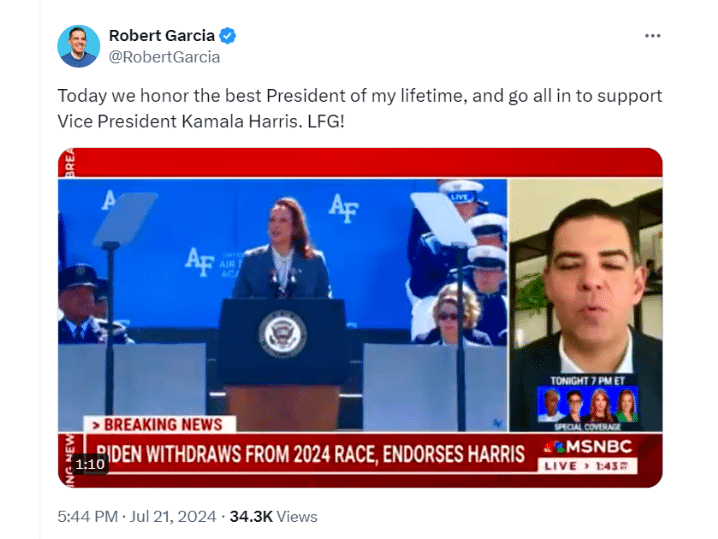
Rep. Andrea Salinas (D-OR)

Rep. Delia Ramirez (D-IL)

Rep. Maxwell Alejando Frost (D-FL)
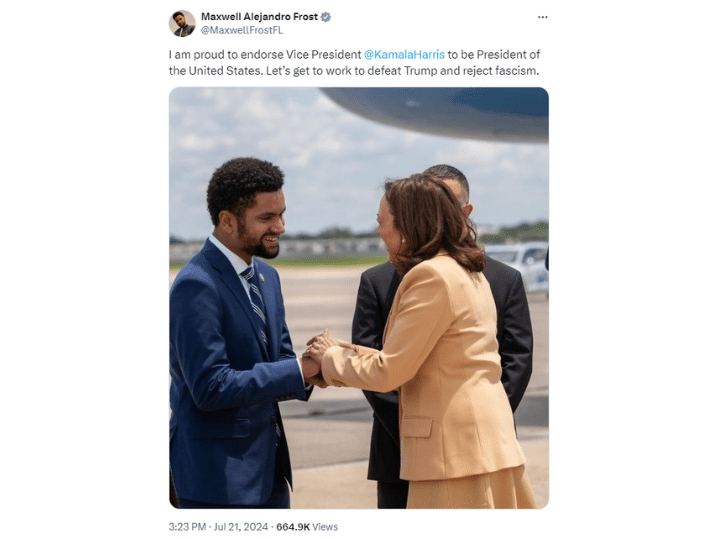
Rep. Sylvia R. Garcia (D-TX)

Rep. Raúl Grijalva (D-AZ)

Rep. Jesús “Chuy” García (D-IL)

Several Democratic-leaning Latino organizations also shared support for Harris. Here are links to four of those groups and their statements:




